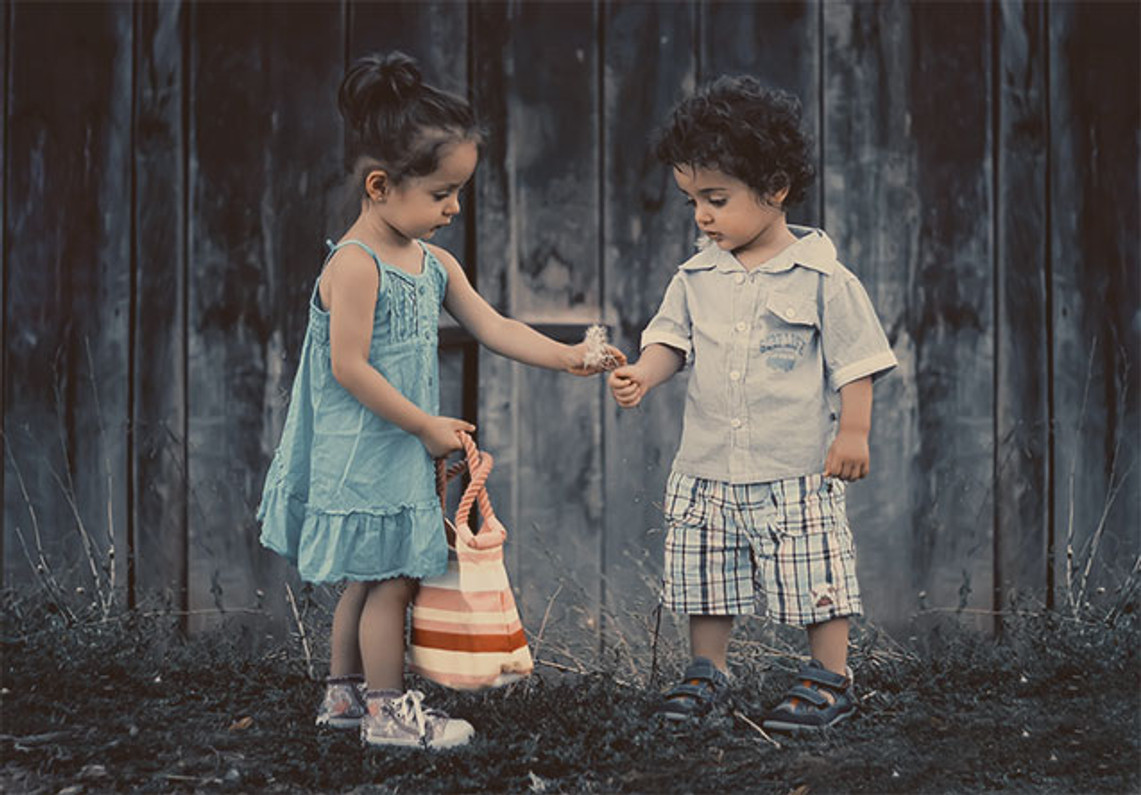GRIEF THROUGH THE EYES OF A CHILD
Washington Irving once said, “There is sacredness in tears. They are not the mark of weakness, but of power. They speak more eloquently than ten thousand tongues. They are the messengers of overwhelming grief, of deep contrition, and unspeakable love.” When I was eight, my mother passed away from a rare form of leukemia. She was diagnosed with the disease just after I was born and that was the start of a roller coaster filled life for our family. It was constantly up and down for us. There were good days where we could go out as a family to the zoo or the park and just play together, but then there were bad days that involved emergency room visits or staying in the house because mommy was in a great deal of pain. For a child, that is very hard to understand. It was hard to understand why I could not go outside and play or have my friend come over. All too often I did not know what I should be doing or what was happening around me. There were days I did not even know where my mom was or if I was ever going to see her again because she was in a section of the hospital that did not allow children to visit. When she finally passed away, I felt confused about what happened to her. The concept of death was not clear to me. The idea that the body is there but no one is inside who responds is still, to this day, difficult for me to accept.
Losing a family member can be difficult for anyone, especially for a child. There are so many different thoughts that go through a person’s head during the grieving process. Grief can be defined as a multifaceted reply to loss. When a child experiences grief it might be hard for them to understand fully what is happening and what is going to happen because there are so many aspects to a their loss. With grief comes a sense of loneliness and being lost. Some children will have many questions and some will sit back in the shadows and wonder to themselves what is going to happen. Once I lost one parent it was clear that I could also lose the other, so an overwhelming mixture of fear and attachment defined my relationship with my father.
After losing my mother I realized that we are all going to die eventually. When I understood that at such a young age it was hard to leave my father’s side. He called me his “shadow” because I was either right next to him or right behind him to make sure he was still alive. Going back to school was especially hard because my dad and my big brother could not be with me. From the moment I left in the morning to the moment I returned after school, I worried about whether I would find anyone alive at home. While I was at school I kept to myself and my friendships deteriorated because neither my friends nor I knew how to act around each other.
Going back to school is hard for young children because they cannot make sense of what happened nor express the breadth of their feelings to those around them. Children look to their remaining parent when they grieve. They have the feeling of distress and extreme loss because someone in their family that they loved dearly is now gone forever. Since younger children have a limited vocabulary, they usually express their grief through behavior, bodily expressions, and play. This means that they might go through a period of time where they have behavioral problems (acting out or not cooperating). Children suffering from grief need to an outlet, a person with whom they can talk without fear of being judged. They might have family and friends, but it is also good to have the teachers involved because they can observe how the child is doing during the day. It is important that all adults who have regular contact with a grieving child reach out to him or her because there is a very high likelihood that the child is feeling alone, very alone. Joseph Conrad, the British novelist who explored the depth of human experience said, “Who knows what true loneliness is not the conventional word but the naked terror? To the lonely themselves it wears a mask. The most miserable outcast hugs some memory or some illusion.”
---Please leave any comments about the article on our Facebook page at griefdigest.
ABOUT THE AUTHOR
Erika grew up in the San Francisco Bay are. After her mom passed away from Leukemia, Erika grew up with her older brother and her dad. Now she is a Senior in college at Azusa Pacific University finishing up her B.A. in Psychology with an emphasis in Child Life. Her dream is to become a Child Life Specialist and work with children that are going through the foster care system. It is important to her that these children feel loved and heard and do not go unnoticed.




